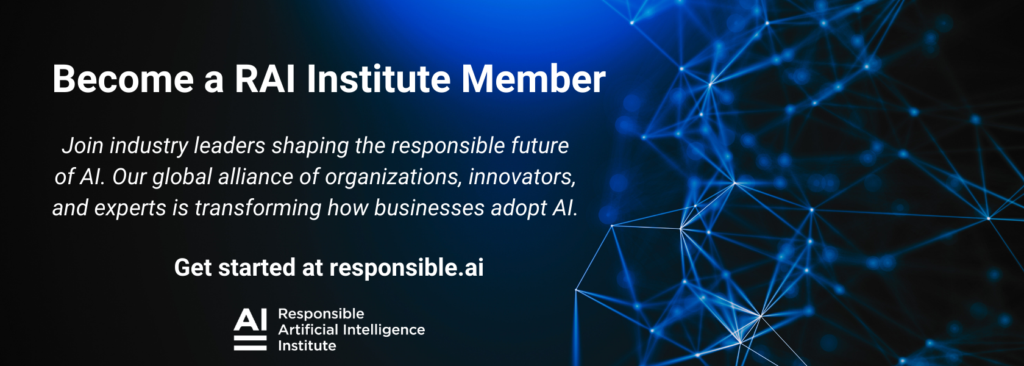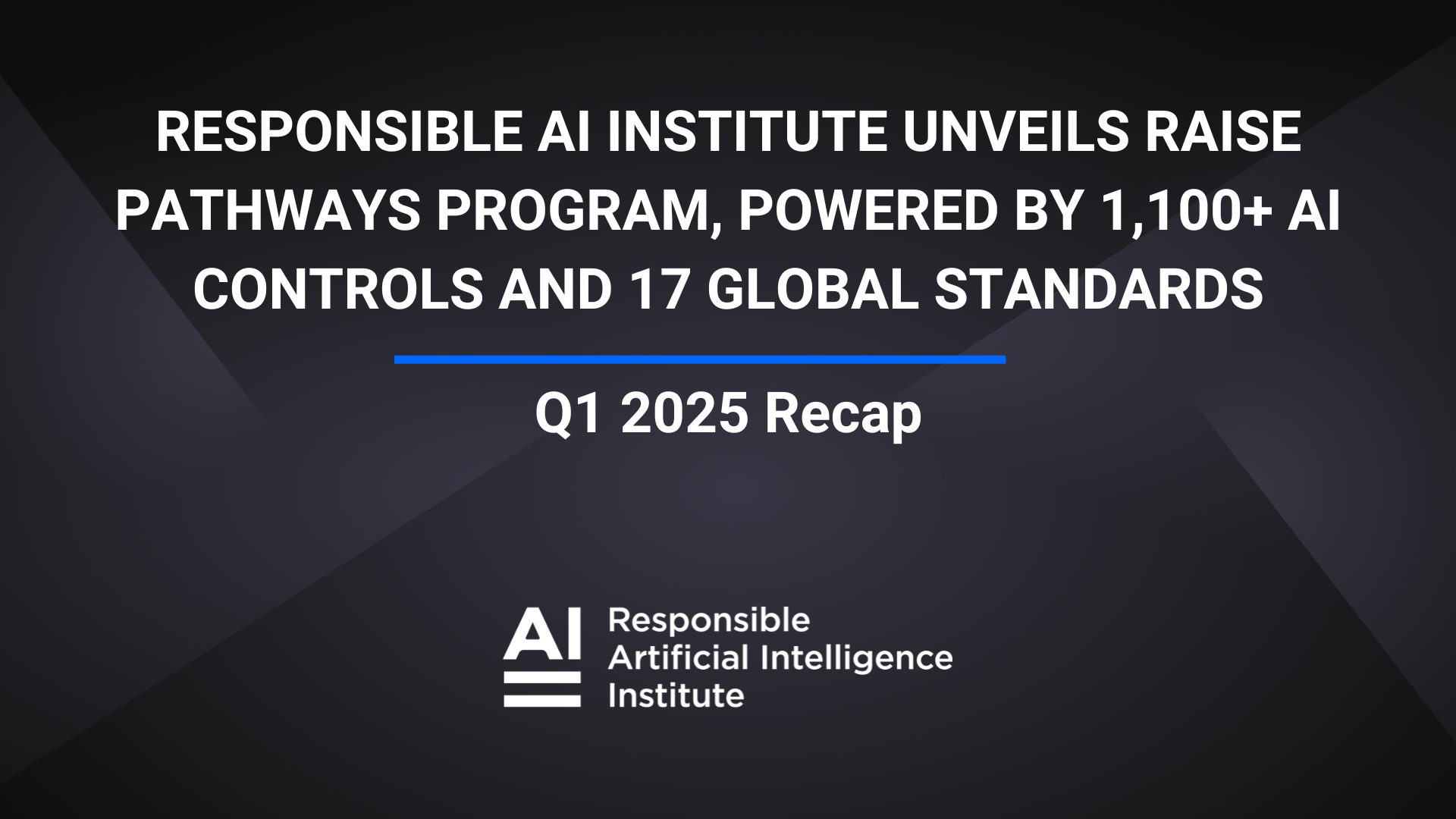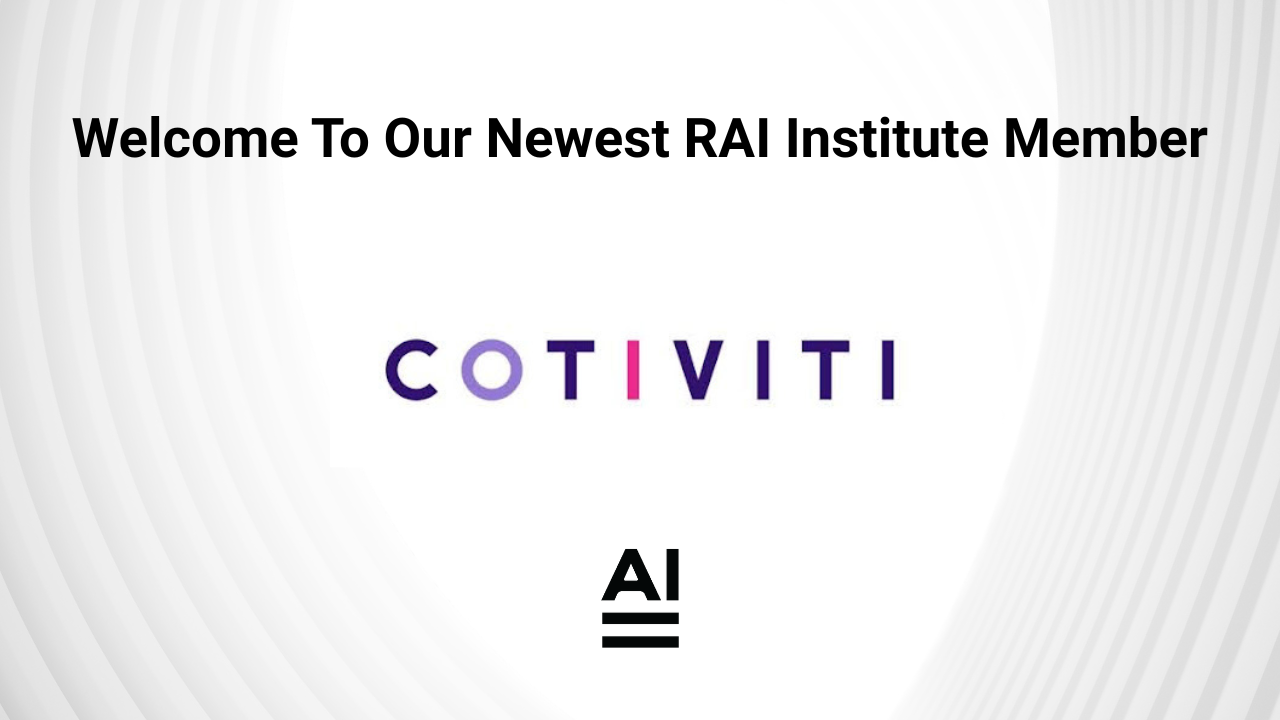Nicole McCaffrey, Head of Strategy & Marketing, Responsible AI Institute
AI agents are poised to be the next major technological shift, much like how generative AI rapidly gained traction in recent years. Unlike traditional AI models that generate content or provide insights based on human prompting, AI agents operate autonomously, making decisions and executing tasks with minimal human oversight. This new level of automation presents both opportunities and risks that business leaders must carefully evaluate.
Now is the time for organizations to proactively assess their risk management strategies, governance frameworks, and compliance requirements — before AI agents become deeply embedded in their operations.
The impact of AI agents is expected to be widespread, influencing industries from healthcare to finance and beyond. The shift to autonomous systems is not merely about efficiency gains; it fundamentally changes how businesses interact with customers, manage operations, and ensure regulatory compliance. Companies that fail to act now risk falling behind competitors who embrace AI agents responsibly.
What Are AI Agents?
What are AI agents? These are autonomous systems designed to make decisions, interact with users and other systems, and learn from experience. These agents are already finding applications across multiple industries:
- Financial Services: AI-powered trading platforms and risk analysis systems operate in real-time, optimizing financial decisions. Explore: Kavout and AlphaSense
- HR and Hiring: AI agents screen and assess job candidates, streamlining the recruitment process. Explore: HireVue and Paradox AI
- Customer Service: AI-driven virtual assistants manage entire customer interactions, resolving customer questions and problems without human intervention. Explore: Replika AI and PolyAI
- Healthcare: AI agents assist in diagnosing conditions, personalizing treatment plans, and monitoring patients in real time. Explore: AlphaFold and Babylon Health
- Supply Chain Management: Autonomous systems optimize logistics, inventory, and demand forecasting, improving efficiency and reducing costs. Explore: Symbotic and ClearMetal
The key differentiator of AI agents is their ability to act independently and adapt their behavior based on real-time data — making them far more advanced than traditional automation tools. Unlike rule-based automation systems, AI agents can learn from interactions, refine strategies, and operate with minimal human intervention. This makes them invaluable in dynamic environments where conditions change rapidly.
Risks and Challenges for Businesses
As organizations deploy AI agents, they must navigate several challenges:
- Autonomy and Accountability: If an AI agent makes a flawed decision, who is responsible — the developer, the deploying company, or the user?
- Bias and Fairness: AI agents trained on biased data can reinforce and amplify discriminatory outcomes, leading to unfair treatment in hiring, lending, or healthcare decisions.
- Security and Compliance: Autonomous AI interacting with sensitive data raises concerns around cybersecurity, data protection, and regulatory compliance. Malicious actors could exploit vulnerabilities in AI agents for fraudulent purposes.
- Transparency and Explainability: Many AI agents function as black boxes, making it difficult for businesses to understand and justify their decision-making processes. Without proper explainability measures, companies may struggle to meet compliance requirements or gain customer trust.
- Workforce Displacement: As AI agents take over repetitive and cognitive tasks, organizations must consider how to reskill employees and ensure a smooth transition for their workforce.
Regulatory and Compliance Considerations
Regulatory bodies worldwide are beginning to scrutinize AI agents, much like they did with generative AI. Frameworks such as the EU AI Act are setting expectations regarding transparency, accountability, and risk management. Businesses should anticipate stricter compliance requirements and align AI agent governance with emerging regulations. While these may vary depending on your location, it’s important to recognize that many AI agents will operate across multiple jurisdictions, meaning that your business will need to comply with varying laws on data privacy, AI usage, and liability.
From transparency and documentation to consumer protection and ethical AI use, now is the time to get ready for upcoming regulations that are sure to impact your use of AI agents.
A Proactive Approach: Responsible AI for AI Agents
To mitigate risks and ensure ethical AI adoption, organizations should take a proactive approach:
- Develop AI Governance Frameworks: Establish policies for oversight, risk assessment, and accountability. These frameworks should outline when human intervention is required and define risk thresholds. Download our free AI Governance Structures Guide for more information.
- Ensure Human Oversight: Maintain human-in-the-loop systems for AI agents involved in high-impact decisions, such as medical diagnoses or financial lending approvals.
- Adopt Ethical AI Standards: Align AI agent development with responsible AI principles to prevent unintended consequences. Companies should leverage established frameworks such as the OECD AI Principles or the IEEE Ethics Guidelines for AI.
- Engage with Industry Leaders: Join responsible AI initiatives, such as RAI Institute, to stay ahead of regulatory and ethical expectations.
- Regular Auditing and Monitoring: AI agents should undergo continuous evaluation to ensure they meet a range of trustworthiness benchmarks, including those addressing fairness, security, and performance. Related resource: Demystifying the AI Assurance Landscape
Now Is the Time to Act
AI agents will transform industries, but businesses that fail to prepare will risk facing legal, ethical, and reputational challenges. By addressing AI governance and compliance now, organizations can build trust and credibility while ensuring they remain compliant with emerging regulations.
A structured, responsible approach to AI agent adoption will not only mitigate risks but also unlock new efficiencies and competitive advantages. Organizations that invest in ethical AI frameworks today will be better positioned to harness the power of AI agents without unintended negative consequences.
Need some support as you look toward the future? Learn how the RAI Institute can help your organization navigate AI agent risks and compliance challenges.

About the Responsible AI Institute
Since 2016, Responsible AI Institute (RAI Institute) has been at the forefront of advancing responsible AI adoption across industries. As a non-profit organization, RAI Institute partners with policymakers, industry leaders, and technology providers to develop responsible AI benchmarks, governance frameworks, and best practices. With the launch of RAISE Pathways, RAI Institute equips organizations with expert-led training, real-time assessments, and implementation toolkits to strengthen AI governance, enhance transparency, and drive innovation at scale.
Members include leading companies such as Boston Consulting Group, Genpact, KPMG, Kennedys, Ally, ATB Financial and many others dedicated to bringing responsible AI to all industry sectors.
Media Contact
Nicole McCaffrey
Head of Strategy & Marketing, RAI Institute
+1 (440) 785-3588
Connect with RAI Institute




